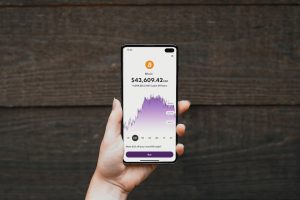Forex Trading vs Stock Market: Which One Offers Better Liquidity?
When it comes to investing your hard-earned money, one of the crucial factors to consider is liquidity. Liquidity refers to the ease with which an asset can be bought or sold without causing a significant impact on its price. In the financial markets, liquidity is essential as it ensures that investors can enter or exit a position quickly and at a fair price, reducing the risk of being stuck in an illiquid investment.
Two popular investment avenues that attract traders and investors alike are forex trading and the stock market. Both offer opportunities for profit, but which one offers better liquidity? Let’s delve into the comparison to find out.
Forex trading, also known as foreign exchange trading, involves buying and selling currencies to profit from their fluctuating values. The forex market is the largest and most liquid financial market globally, with an average daily trading volume exceeding $6 trillion. This immense liquidity is mainly due to the participation of various market players, such as central banks, commercial banks, hedge funds, and individual traders.
The stock market, on the other hand, is the marketplace where shares of publicly listed companies are bought and sold. It is also known as the equity market. The liquidity in the stock market depends on the trading volume and the number of participants. While the stock market is undoubtedly liquid, it may not match the liquidity levels of the forex market.
There are several factors that contribute to the liquidity of the forex market. Firstly, the forex market operates 24 hours a day, five days a week. This means that traders have the flexibility to trade at any time, allowing for continuous liquidity. In contrast, the stock market has specific trading hours, usually from 9:30 am to 4:00 pm EST, limiting the time window for trading and potentially reducing liquidity during non-trading hours.
Secondly, the forex market is highly decentralized, with trading taking place electronically over-the-counter (OTC) rather than through a centralized exchange. This decentralization ensures that there is no single exchange or institution controlling the market, providing ample liquidity as trading occurs across various financial centers globally. Conversely, the stock market operates through centralized exchanges like the New York Stock Exchange (NYSE) or NASDAQ, where trading is regulated and limited to specific hours.
Another factor that enhances forex market liquidity is the high number of currency pairs available for trading. Major currency pairs like EUR/USD, GBP/USD, and USD/JPY, along with a wide range of minor and exotic currency pairs, offer traders numerous options to choose from. This vast selection ensures that traders can always find a counterparty to execute their trades, further enhancing liquidity. In comparison, the stock market may have a limited number of actively traded stocks, especially when compared to the vast number of currency pairs available in forex trading.
Additionally, the forex market benefits from high trading volumes due to its popularity among retail traders and institutional investors. The accessibility of forex trading platforms and the low barriers to entry have attracted a large number of participants, resulting in increased liquidity. The stock market, although also popular, may have lower trading volumes for individual stocks, especially for lesser-known companies with lower market capitalization.
It is important to note that liquidity in both the forex market and the stock market can vary depending on market conditions, economic events, and other external factors. During periods of heightened volatility or major news announcements, liquidity can decrease temporarily in both markets. However, due to its sheer size and the continuous nature of trading, the forex market tends to maintain better liquidity even during volatile times.
In conclusion, while both forex trading and the stock market offer liquidity, the forex market generally provides better liquidity due to its 24/5 trading hours, decentralized nature, wide selection of currency pairs, and high trading volumes. However, it is crucial for traders and investors to assess their own investment goals, risk tolerance, and trading strategies before choosing between forex trading and the stock market. Ultimately, the decision should be based on individual preferences and the specific requirements of each investor.






